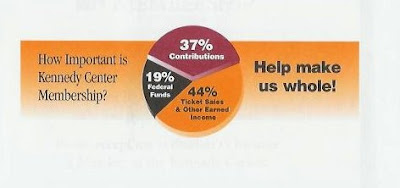SERAPHIM FALLS (2006)Starring: Liam Neeson (Carver), Pierce Brosnan (Gideon)
Directed by: David Von Ancken
Writer: David Von Ancken & Abby Everett Jaques
PROTAGONIST GIDEON’S DILEMMA: He is trying to leave his old life behind by Carver won’t let him..
PROTAGONIST'S DESIRE: To forget about the past and get on with a new life.
PROTAGONIST'S OBSTACLE: Carver on his tail with a posse of five.
ESTABLISHING SHOT: Snowy mountain peaks. “Ruby Mountains 1868.”
INCITING INCIDENT: He is shot at the shoulder by a sniper.
PLOT POINT 1: Gideon takes out the bullet in his shoulder. We know he will survive.
MID POINT (REVERSAL) EVENT: N/A
PLOT POINT 2: Through a flashback, we learn why Carver is mad at Gideon, who used to be a Union officer during the Civil War.
3rd ACT RESOLUTION: Final confrontation at the desert. The two exhausted men decide to bury the hatchet and go their own separate ways.
-----------------------------------------------------------
APOCALYPTO (2006)Starring: Rudy Youngblood (Jaguar Paw), Dalia Hernández (Seven), Jonathan Brewer(Blunted), Morris Birdyellowhead (Flint Sky), Carlos Emilio Báez (Turtles Run)
Directed by: Mel Gibson
Writer: Mel Gibson & Farhad Safinia
PROTAGONIST JAGUAR PAW’S DILEMMA: He is afraid of death but he has to face and overcome his fear to save his wife and son from enemy hands.
PROTAGONIST'S DESIRE: To live the good life with his family.
PROTAGONIST'S OBSTACLE: Slave traders capture him to sell to the Mayan temple..
ESTABLISHING SHOT: A tapir hunt by the local Indians in a South American jungle. Jaguar Paw is the chief’s son.
INCITING INCIDENT: Jaguar Paw and friends meet another tribe in the jungle who are migrating away. Something happened to them and they are scared..
PLOT POINT 1: Jaguar Paw’s village is ambushed by slave traders and all are taken captive.
MID POINT (REVERSAL) EVENT: Jaguar Paw is saved from the religious execution at the temple by the solar eclipse.
PLOT POINT 2: Jaguar Paw defies the odds and runs away from his captors, launching a long chase.
3rd ACT RESOLUTION: Jaguar Paw and family survive the slave traders only to be introduced to a new reality down at the beach – Spanish galleons.
-----------------------------------------------------------
SAVING PRIVATE RYAN (1998)Starring: Tom Hanks (Captain John H. Miller), Tom Sizemore (Sergeant Mike Horvath), Edward Burns (Pvt. Richard Reiben), Barry Pepper (Pvt. Daniel Jackson), Adam Goldberg (Pvt. Stanley Mellish), Vin Diesel (Private Adrian Caparzo), Giovanni Ribisi (T-4 Medic Irwin Wade), Jeremy Davies (Cpl. Timothy P. Upham), Matt Damon (Private James Francis Ryan), Ted Danson (Captain Fred Hamill), Paul Giamatti (Sergeant Hill), Dennis Farina (Lieutenant Colonel Anderson)
Directed by: Steven Spielberg
Writer: Robert Rodat
PROTAGONIST JOHN MILLER’S DILEMMA: He is a high school English teacher but he has to serve his country at D-Day..
PROTAGONIST'S DESIRE: To find Private Ryan and go back home to his wife.
PROTAGONIST'S OBSTACLE: They don’t know where Ryan is. They have to find him somewhere in France while fighting the Germans.
ESTABLISHING SHOT: A much older James Ryan visits the military cemetery at Normandy, France to flashback to the D-Day.
INCITING INCIDENT: Army Chief Staff Gen. George C. Marshall decides that, since all his three brothers are killed in action, Private Ryan must be found and safely delivered back to his mother in Iowa.
PLOT POINT 1: After gaining a foothold at Omaha Beach, Capt. John Miller is issued his orders to find and take Private Ryan safely back home.
MID POINT (REVERSAL) EVENT: Private Ryan refuses to leave his squad and go back home.
PLOT POINT 2: Germans attack the strategic bridge that Ryan’s squad, together with Miller’s squad defend.
3rd ACT RESOLUTION: Miller, while dying, whispers to Ryan’s ear and asks Ryan to “earn it” so that the death of all those who perished to save Ryan won’t be in vain. Back to our own day, his wife assures Ryan that he is a good man and he indeed lived a good life and “earned it.”





















